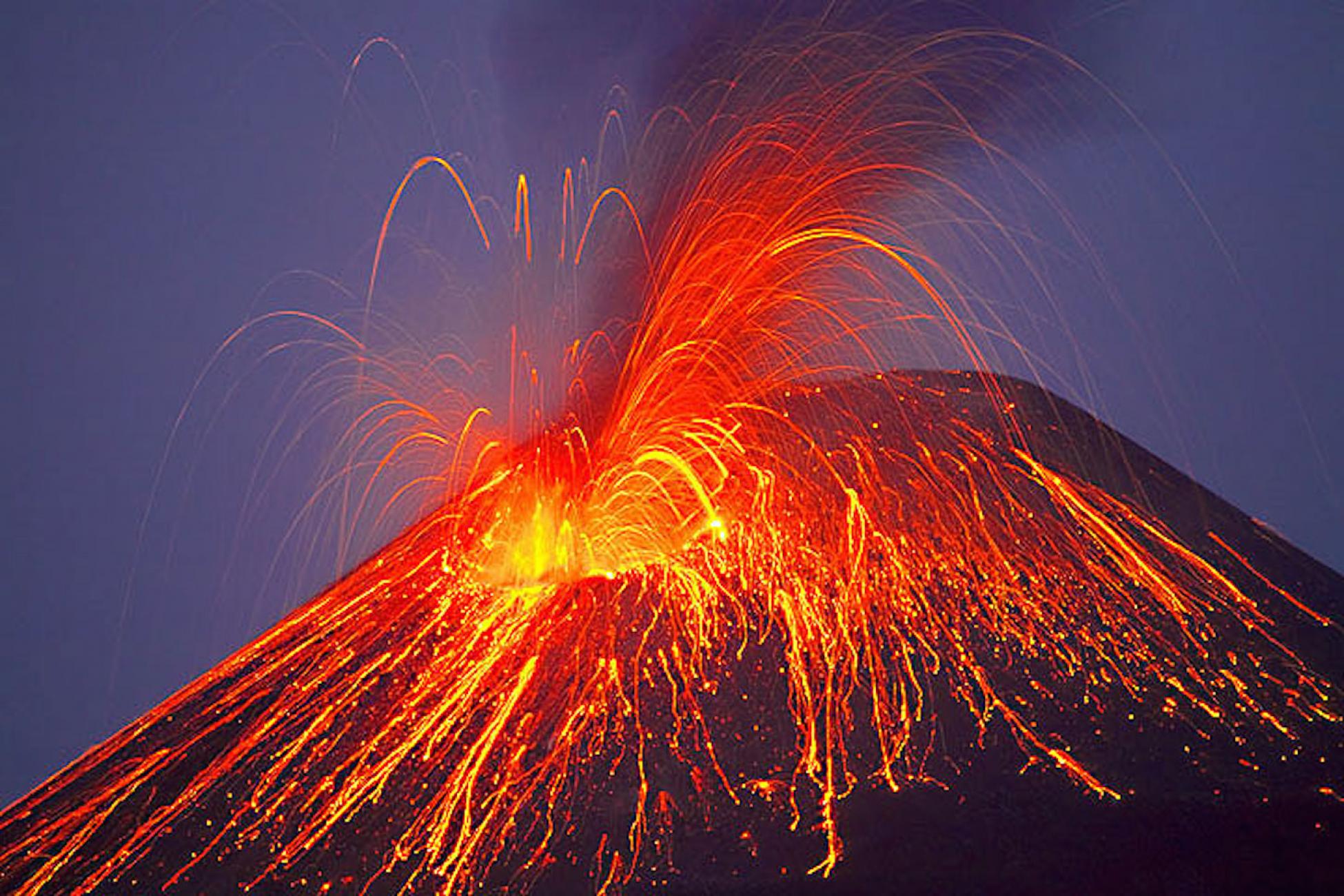Ecuador is like a pincushion; it's stuck with many little holes that burrow down into the core of earth, down into the melted inside. It's incredibly volcanic, and I have decided to live in a place called Volcano Alley. Everywhere you look you see volcanoes. On a clear day from the roof of my apartment building, I can see three active snow-capped volcanoes and three extinct ones.
Until one early afternoon in August, I thought Volcano Alley was just a particularly beautiful region of this incredible country. And then when I left work that day, I had a wake-up call. Cotopaxi, the largest, closest volcano, had woken up after a hundred years of slumber with a massive explosion. Just two months earlier, my parents and I had climbed breathlessly to the glacier line on that same volcano. Now, it was coating the Los Chillos Valley with ash.
We are afraid of change. Even for the most intrepid, throw-off-the-bowline travellers, it's likely hidden in there somewhere.
Over the following months, signs of the new relationship with our threatening neighbour cropped up everywhere. The municipal government started painting green lines on the major streets directing everyone towards the “Safe Zone.” Advertisements for apartments and pieces of land started to proudly declare to potential buyers that they were in the Safe Zone. For a few weeks, any alarm that sounded (car alarms, trucks backfiring, truly anything) in the downtown area of my small city meant, to me, that lava had surely descended from the volcano and I should probably enter immediate panic mode.
It was being thrust in my face every single day: fear. At any moment this thing could blow. At any moment, something could happen, something bad, and the consequences would likely be permanent.
And so it is to live abroad.
Okay, it is unlikely that a volcano will ever threaten you. But fear is always bubbling just beneath the surface when it comes to living abroad. At any moment something could happen, something could change for you. For most international travellers, this means a mugging at the worst, but for expats we know there is something deeper than that. When we start pulling back the layers of this complicated but beautiful experience, we often see fear, of the vast unknown of living abroad.
We are human beings, we are afraid of change. Even for the most intrepid, throw-off-the-bowline travellers, it's likely hidden in there somewhere.
When I moved to Ecuador over a year and a half ago, I arrived as a volunteer for a non-profit organization. Starry-eyed, I threw myself into my work: community development and program management in an under-served community outside of Quito. I started to make local friends and build networks of people that I could count on. I started speaking more Spanish than English.
Slowly, things started to change. I woke up one day and looked around and realized I was different. Ecuador had made me stronger, it had made me more open-minded and wise. I had realized that personalities are not determined by the language in which we communicate them, and that this experience of living abroad would change me forever. I wouldn’t be able to go back to my life as it was, even if I tried.
That’s good, but it's also scary. It's scary to change, and it's scary to be different from what you always were. It's scary when you start to communicate with friends from home about your experience and they don’t really understand, and don’t try to. It's scary when you love it more than you thought you would, it's scary when you don’t think you’ll be able to go back to where you were without seeing everything from a different perspective. For some, it's more along the lines of fear when you suddenly can’t remember why you decided to make this crazy life choice in the first place. And the scariest question yet; what if I don’t want to ever go back, or what if this experience changes me so much that I can’t?
Cotopaxi has settled down a bit, and the national park has even been re-opened for those daring enough to visit. I started eating the tuna and the other canned emergency foods that I had squirrelled away. The volcano is still active, and every once in a while when I wake up in the morning I can see a belch of ash highlighted against the bright blue sky. But it’s calming down. We’re learning to live with it.
All we can do at the end of the day is learn to live with it. As travellers and explorers and expats we fall in love with the idea of making the unknown known, that’s what makes the experience exciting. But learning to live with the just-below-the-surface fear of change will make you all the stronger.
Add this article to your reading list




